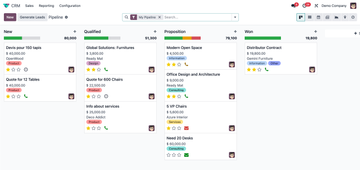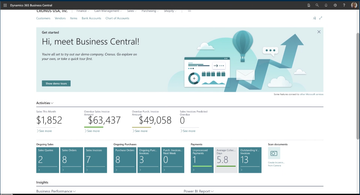Dynamics 365 Business Central vs. Odoo
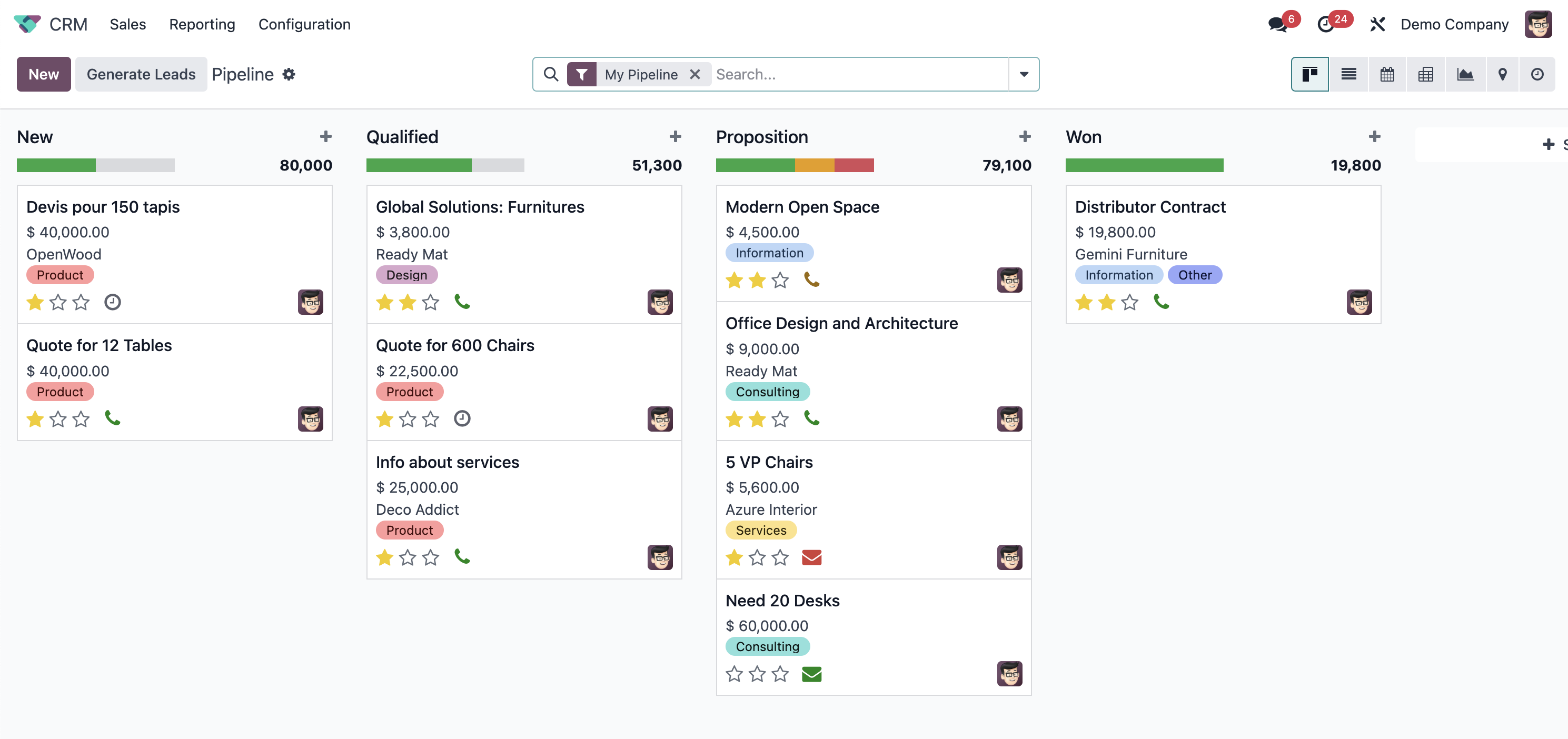
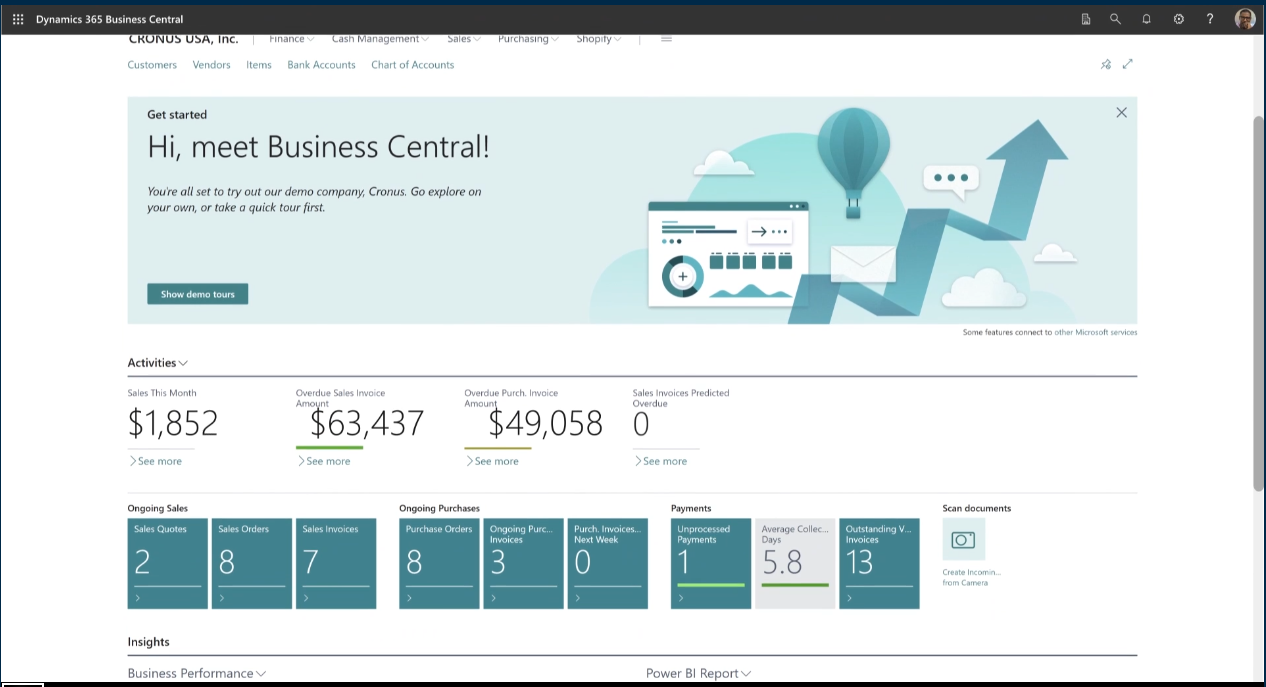
-
Price Range
$ $ $ $ $$ $ $ $ $
- Starting Price Free
- Client OS iOS, Android, Web
-
Price Range
$ $ $ $ $$ $ $ $ $
- Starting Price $70/user/month
- Client OS Web
Our editorial team tested the demo version of Odoo and the free trial of Microsoft Dynamics 365 Business Central. After an in-depth analysis of their features, pricing, usability, and target markets, we’ve reviewed both ERP systems to draft this comparison.
Scope and Complexity
A light ERP system like Odoo is highly modular, allowing users to start with one app and add more in a piecemeal fashion as their operations expand. It best suits smaller companies with simpler needs, providing basic functionalities for a low cost and simpler implementation.
In contrast, a full-fledged ERP like Microsoft Dynamics 365 Business Central targets larger organizations with more complex operations. It’s a complete system with features like financial management and supply chain operations baked in from the start. However, it’s more expensive, and implementation is more complicated.
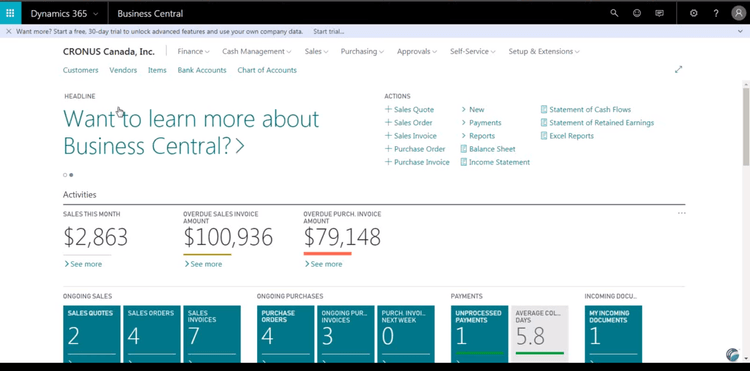
Features
| Feature Category | Odoo Features | Microsoft Dynamics 365 Business Central Features |
|---|---|---|
| Open Source | Fully open-source | Proprietary software |
| Pricing Flexibility | Pay per module, customizable pricing | Subscription-based, generally per user |
| Community Support | Strong community support with online discussions | Extensive partner network, but less community-driven |
| Deployment Options | Flexible deployment (cloud, on-premises, hybrid) | Mostly cloud-based with on-premises options available |
| eCommerce Integration | Offers native eCommerce module | Requires third-party solutions or additional licenses |
| App Market | Over 10,000 apps available on Odoo App Store | Over 5,000 apps available on AppSource |
| AI and Machine Learning | Limited AI/ML capabilities, mostly through integrations | Native AI capabilities with integration into Microsoft ecosystem (e.g., AI Builder) |
| Integration with Microsoft Products | No native integration with Microsoft products | Integrates with Microsoft 365, Teams, Power BI, etc. |
| Financial Management | Features general ledger, accounts receivable and payable, bank reconciliation, asset management, budgeting | Includes general ledger with dimensions, accounts receivable and payable, bank account management and reconciliation, fixed asset management, cost accounting |
| Manufacturing | Offers bill of materials, maintenance management, work orders, quality control, MRP | Supports agile manufacturing, supply and capacity planning, version management, production orders |
| CRM Capabilities | Supports lead and contact management, opportunity tracking, quotations and orders, sales team performance tracking | Includes contact and opportunity management, sales order processing, sales forecasting, integrates with Dynamics 365 Sales |
Pricing
Odoo’s pricing is fairly flexible for small businesses, with a free One App plan providing unlimited user access to a single module. For broader access to all apps and Odoo Online, the Standard plan is $31.10/user/month (billed annually) or $38.90/user/month (monthly billing). You can also opt for the Custom plan at $46.70/user/month (billed annually) or $54.80/user/month (billed monthly). This version includes more advanced features like multi-company support and analytics, plus on-premise deployment.
Business Central, on the other hand, follows a more traditional pricing model. The Essentials plan is $70/user/month with core features like CRM, accounting, and supply chain management. The Premium plan is $100/user/month with more advanced functionalities like manufacturing and service management. A Team Members plan is also available at $8/user/month for limited access, but most companies will need the Essentials or Premium plans.
Key Differences
- Odoo provides a free plan with more affordable pricing for smaller businesses.
- Dynamics 365 includes an extensive feature set at a higher cost, ideal for larger companies.
- Odoo’s plans increase in cost with complexity and deployment flexibility; Dynamics 365 is more expensive with a straightforward pricing structure.
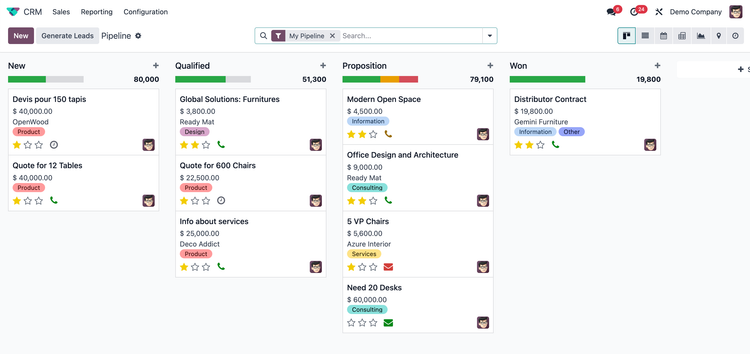
Dynamics 365 Business Central vs. Odoo: Which One is Right for Your Business?
For most businesses, we recommend Odoo over Microsoft Dynamics 365 Business Central. While both are effective ERP solutions, Odoo’s free community version, heavy customization options, and double-entry inventory system put it ahead. It’s also generally less expensive than Dynamics 365, making it more accessible for smaller businesses.
However, if your business is deeply integrated with the Microsoft suite and you need seamless compatibility, Dynamics 365 Business Central can be a strong choice. It also has a familiar interface for anyone accustomed to Microsoft Word and Outlook, which can reduce the learning curve.
For a more comprehensive view of available options, check out our roundup of the best ERP software.
